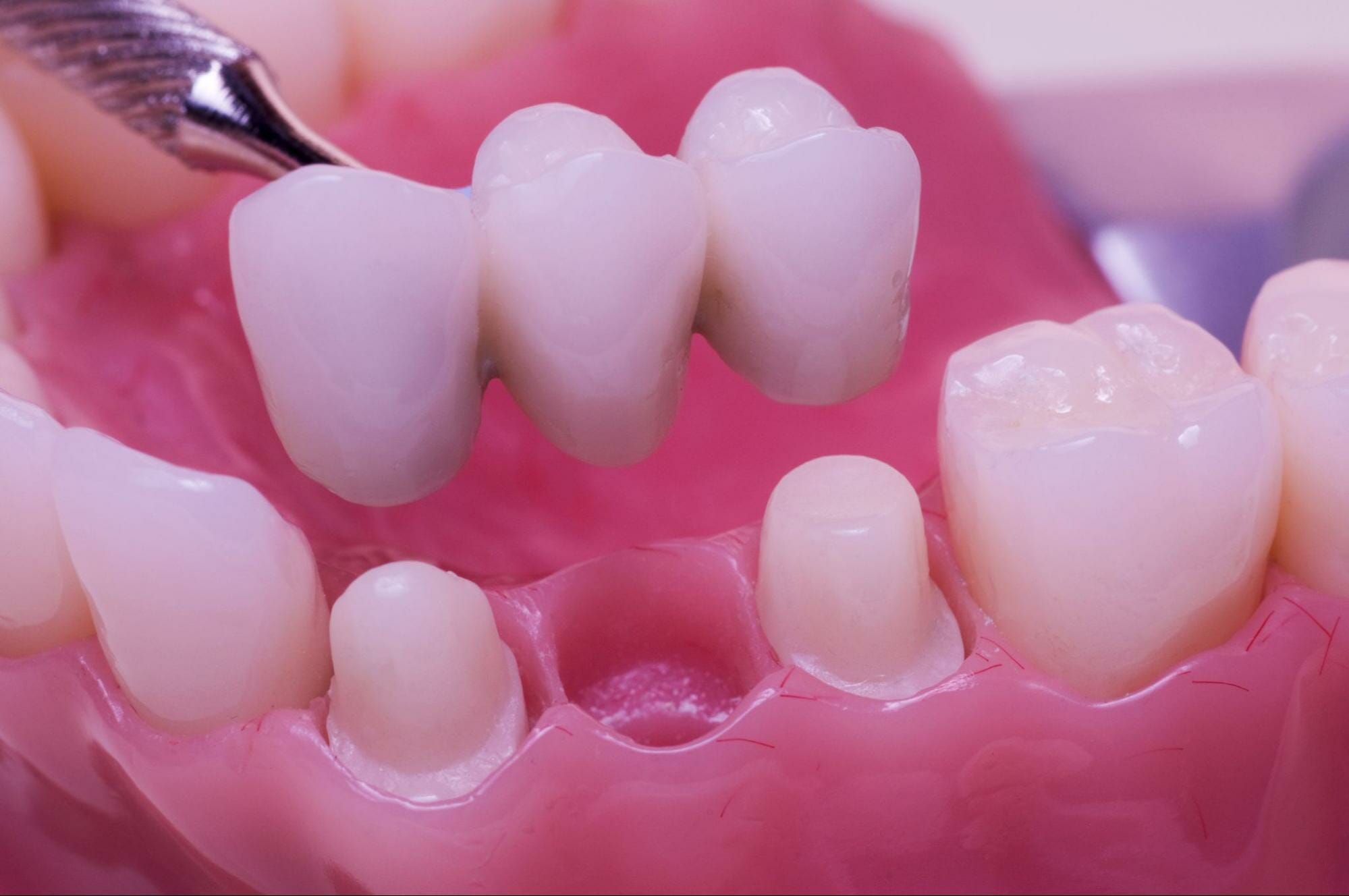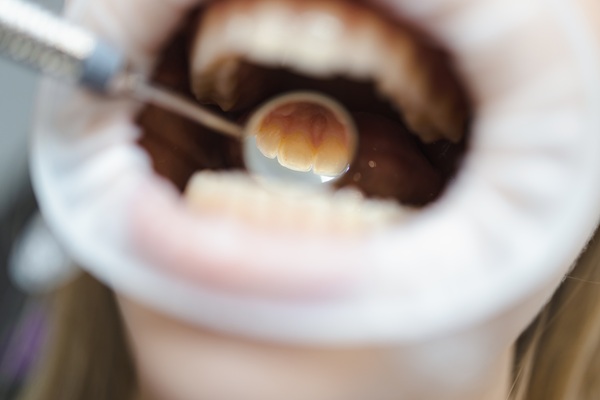Do you think that once you have dental bridges, you can bid farewell to your oral hygiene routine? Think again! While dental bridges offer a fantastic solution for restoring missing teeth and rejuvenating your smile, they don’t eliminate the need for maintaining good oral hygiene. In fact, it becomes even more important to prioritise oral care when you have dental bridges. These remarkable restorations require regular cleaning and attention to ensure their longevity and the health of your surrounding teeth and gums. Join us as we walk you through the vital role of oral hygiene in preserving the beauty and functionality of your dental bridges, ensuring a healthy smile that stands the test of time.
What is a Dental Bridge?
A dental bridge is a popular dental restoration that fills the gap created by one or more missing teeth. It consists of two or more crowns, known as abutments, on either side of the gap, with a false tooth, called a pontic, in between. The abutment teeth serve as anchors for the bridge, supporting the pontic and restoring the appearance and functionality of the missing teeth.
Dental bridges can be made from various materials, including porcelain, ceramic, or a combination of materials. The choice of material depends on factors such as the location of the bridge in the mouth, aesthetic considerations, and the patient’s preferences.
The process of getting a dental bridge typically involves multiple dental visits. During the initial visit, the abutment teeth are prepared by removing a portion of their enamel to make space for the bridge. Impressions of the teeth are taken to create a custom bridge that fits seamlessly into the patient’s mouth. In the meantime, a temporary bridge may be placed to protect the exposed teeth.
Once the permanent bridge is ready, it is carefully fitted and adjusted to ensure a comfortable and proper bite. The bridge is then cemented into place, completing the restoration and giving the patient a restored smile.
Dental bridges not only improve the appearance of the smile but also offer functional benefits. They help restore proper chewing and speaking abilities, prevent adjacent teeth from shifting, and distribute the forces evenly across the dental arch. However, just like your natural teeth, dental bridges require proper care and attention to ensure their long-term success and optimal oral health.
Tips to Maintain Good Oral Hygiene with Dental Bridges
Taking care of your dental bridges goes beyond just aesthetics – it’s about ensuring their longevity and preserving the health of your natural teeth and gums. Here are some essential tips to help you maintain impeccable oral hygiene with dental bridges:
- Brush Your Teeth Regularly
Regular brushing is the foundation of a solid oral hygiene routine, especially when you have dental bridges. Use a soft-bristled toothbrush and fluoride toothpaste to gently clean all surfaces of your teeth, including the bridge. Pay extra attention to the areas where the bridge meets the gums and the adjacent teeth. Brush at least twice a day for two minutes each time to effectively remove plaque and prevent the buildup of harmful bacteria.
- Floss Daily
Flossing is a game-changer when it comes to maintaining oral hygiene with dental bridges. Use super floss or interdental brushes to clean between the teeth and under the bridge. Gently slide the floss or brush in a back-and-forth motion to remove food particles and plaque. This helps prevent gum disease and ensures that the area around the dental bridge remains clean and healthy.
- Use an Antibacterial Mouthwash
Incorporating an antibacterial mouthwash into your oral hygiene routine can provide an extra layer of protection for your dental bridges. Rinse your mouth with a mouthwash after brushing and flossing to help kill bacteria and reduce plaque formation. Look for mouthwashes that are specifically formulated for gum health and follow the instructions on the product label for optimal results.
- Avoid Hard and Sticky Foods
To maintain the integrity of your dental bridges, it’s best to steer clear of hard and sticky foods that can potentially damage or dislodge them. Hard foods like nuts or ice cubes and sticky treats like caramels or chewing gum can put unnecessary stress on the bridges and increase the risk of loosening or breakage. Opt for softer and healthier alternatives to protect both your dental bridges and your overall oral health.
- Use a Waterpik
A Waterpik or a water flosser, can be a valuable tool for maintaining oral hygiene with dental bridges. This device uses a stream of water to effectively clean between the teeth and along the gum line. It can be particularly useful for reaching areas that are difficult to access with traditional flossing methods. Incorporate a Waterpik into your oral care routine a few times a week to enhance the cleanliness around your dental bridges.
- See Your Dentist Regularly
Regular dental check-ups are necessary for maintaining good oral hygiene, especially when you have dental bridges. Aim to visit your dentist at least every six months or as suggested by your dental practitioner. Your dentist will closely monitor the condition of your dental bridges, assess the health of your gums, and address any potential issues early on. Regular professional cleanings also help remove stubborn plaque and tartar buildup that brushing and flossing may miss. It is also important to be aware of any changes or discomfort with your dental bridges. If you notice anything unusual, such as a loose bridge, changes in fit, or irritation of the surrounding gums, promptly contact your dentist for evaluation and necessary adjustments.
By staying on top of your oral hygiene routine, you can ensure that your dental bridges remain in optimal condition, so you can enjoy a healthy, beautiful smile for years to come.
Alternatives for Dental Bridges
While dental bridges are a popular solution for replacing missing teeth, they may not be suitable for everyone. Fortunately, there are alternative options available that can restore both the appearance and functionality of your smile. Here are a few notable alternatives to dental bridges:
- Dental Implants: Dental implants have gained massive popularity as a long-term tooth replacement option. They involve the surgical placement of a titanium post into the jawbone, which serves as a sturdy foundation for a custom-made dental crown. Dental implants offer a permanent and natural-looking solution that mimics the strength and function of natural teeth.
- Removable Dentures: Removable dentures are prosthetic teeth attached to a gum-coloured acrylic base that sits on the gums. They are designed to replace multiple missing teeth and can be taken out for cleaning. While removable dentures can be a more affordable option for tooth replacement, they may not offer the same stability and comfort as dental bridges or implants.
- Implant-Supported Dentures: Implant-supported dentures combine the benefits of dental implants and removable dentures. These dentures are anchored to dental implants surgically placed in the jawbone, providing enhanced stability and support. Implant-supported dentures offer a more secure fit compared to traditional removable dentures and can improve chewing ability and overall comfort.
- Partial Dentures: Partial dentures are an option when only some teeth are missing. They consist of artificial teeth attached to a metal or acrylic framework that clasps onto the adjacent natural teeth. Partial dentures are removable and can help restore both aesthetics and function, although they may require periodic adjustments.
Make sure to consult with your dentist to determine the most suitable alternative for your specific dental needs. Each option has its own advantages and considerations, and your dentist can guide you in choosing the appropriate solution to restore your smile and improve your oral health.
Related: 5 Dental Options to Replace a Missing Front Tooth
Exercise Regular Oral Hygiene for a Lifetime of Dental Wellness
At Bellevue Hill Dental, we strongly believe in the importance of regular oral hygiene for maintaining optimal dental wellness, regardless of whether you have natural teeth or restorations like dental bridges or implants. When you come to us for treatment, our team not only provides comprehensive dental care but also empowers you with the knowledge and tools to exercise optimal oral hygiene habits. We are passionate about educating and equipping you with the necessary resources to maintain a healthy smile for a lifetime. Schedule an appointment with us, and let us partner with you in achieving and maintaining a radiant smile for years to come.




